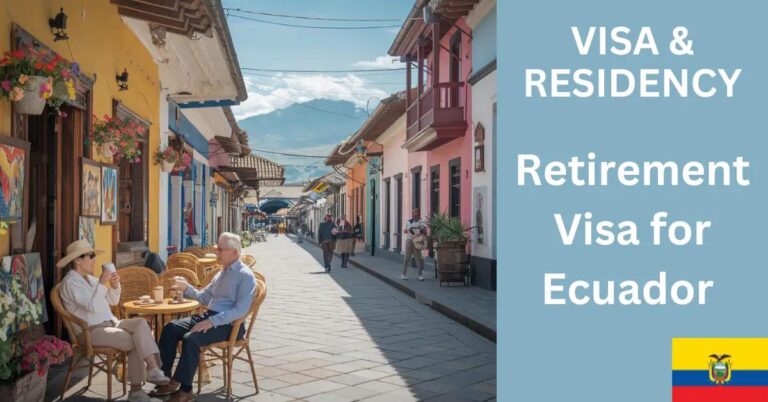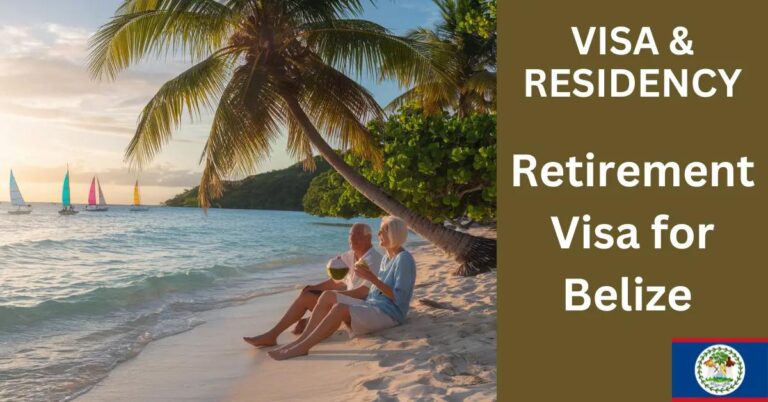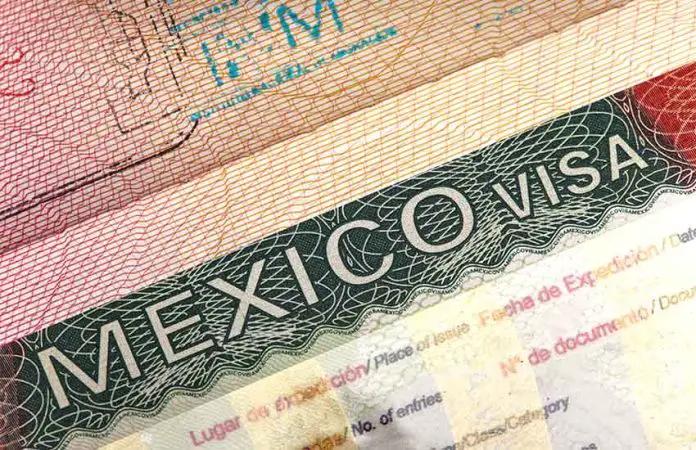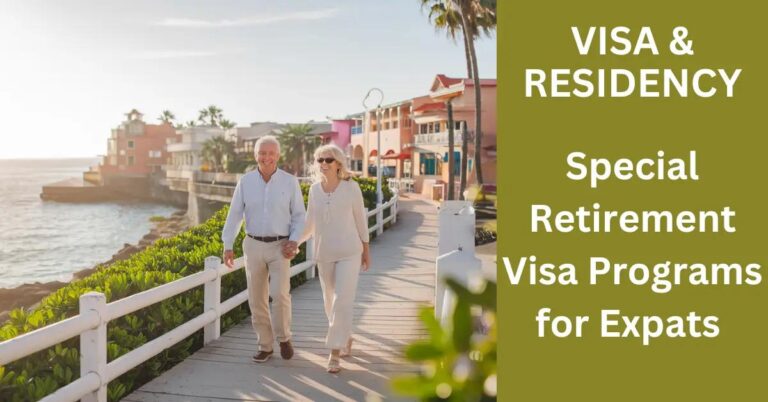TL;DR:
- US citizens can retire abroad; residency differs from citizenship.
- Countries like Portugal, Thailand, and Mexico offer easy retirement visas.
- Gather documents for applications: birth certificate, passport, proof of income.
- Show financial independence with income/pension proof.
- Residency requirements include minimum income and health insurance.
- US retirees abroad must report global income but may use tax treaties to mitigate double taxation.
- No specific US retirement visa; alternative options include family-based or investment visas.
- Top retiree destinations include Portugal, Mexico, and Spain.
- Citizenship by investment may involve property/business investment.
- Adapting abroad involves language learning, cultural integration, and community engagement.
Imagine waking up to the sun-drenched vistas of Portugal or the serene beaches of Costa Rica in your golden years. Retiring abroad is a dream many hold dear, with the allure of new cultures and often lower costs of living. But what if you want more than just a long vacation? You might be dreaming of real citizenship in a foreign land. In "Pathways to Citizenship for Retirees Abroad: Is It Possible?" we’ll reveal how retirees can make this dream a reality. From easy retirement visas to crucial documentation and income proof, embark on a journey that could change your life forever. Let’s explore the steps to turn your expat dream into a permanent place called home.
Pathways to Citizenship: What Are the Initial Steps for Retirees Abroad?
The dream of retiring abroad starts with careful thought. First, let's look at initial considerations. Can a US citizen retire in another country? Yes, US citizens can retire abroad, but rules differ everywhere. You’ll need to choose a place that suits your lifestyle and financial situation.
Next, learn the difference between residency and citizenship. Residency often means you can live in a country, but you’re not a citizen. Which country has the easiest retirement visa? Countries like Portugal are known for easy retirement visas. Such visas offer choices for long stays, sometimes leading to citizenship.
For the application process for citizenship abroad, gather key documents. These include your birth certificate, passport, and proof of address. Check each country's specific requirements since paperwork may differ.
Another important step involves showing financial independence. You need to prove your income. Many countries ask for bank statements or pension details. This proof shows that you can support yourself without working locally.
Start by exploring countries known for easy paths to a retired life. Thailand, Panama, and Portugal have appealing retirement visa options. They provide welcoming conditions, allowing retirees to enjoy their golden years abroad.
For retirees, financial independence, key documents, and choosing a friendly country are crucial. Your decision will shape your new life, making the process worth every step.
What Are the Residency Requirements for Retirees?
Retiring abroad sounds exciting, but understanding residency requirements is key. Many countries offer retirement visas that cater to retirees, each with its own needs. Some popular destinations include Portugal, Thailand, and Mexico. These countries provide specific criteria that retirees must meet to enjoy living there.
Which countries offer retirement visas? Portugal, Thailand, and Mexico offer visas for U.S. citizens. These locations are known for their retiree-friendly policies and appealing climates.
Common requirements include proof of income or pension. This often ensures that retirees can support themselves abroad. Usually, there's a minimum income threshold to meet, which varies by country. Health insurance is another key element. Many countries request proof of coverage to ensure healthcare needs are met. Therefore, securing an international health plan might be wise.
Length of stay and renewal specifics vary too. For instance, Thailand’s visa might require yearly renewal. Mexico's visa allows a longer stay before reapplication. Each country sets its own regulations regarding how long you can stay before renewing.
Why does income and pension proof matter for residency? It shows financial stability. Countries want to ensure you're not a burden on local services.
Understanding the regulations for each location helps in planning your residency. These rules can change, so staying updated by checking with local consulates or official websites is helpful. This is part of what makes embarking on a retirement journey abroad adventurous yet crucially informed.
For more details on specific criteria, you can explore this link to additional information.
Finally, keep in mind that each country has different rules, so researching thoroughly beforehand is essential. Ensure that you understand residency regulations to make the most of your new adventure abroad.
How Does the Naturalization Process Work for Seniors?
Can I immigrate to the USA as a retiree? Yes, but it requires meeting certain criteria. You must secure a visa, such as the family-based or investment visa, as the U.S. lacks a specific retirement visa.
The naturalization process for seniors begins with researching residency requirements. Different countries have unique rules. Seniors often need a long-term visa first, then apply for citizenship later. Legal assistance can be vital in understanding these rules and ensuring correct paperwork.
Countries may offer dual citizenship options, allowing you to keep your original citizenship while gaining a new one. This can provide benefits like easier travel and more living options. However, balancing taxes and legal obligations can pose challenges. Consulting with legal experts helps navigate these complexities.
Language skills may be necessary for naturalization. Some countries require seniors to pass language tests. Classes or tutors can assist in meeting these requirements. Knowing the local language also aids in blending into the community and enriching everyday experiences.
Costs and timelines vary significantly. Some countries have straightforward paths, while others are more complex and costly. Fees include application charges, legal assistance, and language tests, which can add up. Staying informed about the timeline helps in planning finances and life changes effectively.
Overcoming bureaucratic hurdles involves understanding each country's specific processes. Frequent changes in law might occur. Continuous updates and communication with immigration authorities and lawyers help tackle these hurdles. In numerous cases, patience and persistence are key to a successful naturalization journey.
Exploring the easiest country for a U.S. citizen to retire in depends on personal needs and preferences. Many lean towards nations with simpler visa requirements and lower costs. Portugal and Mexico often rank high for offering welcoming atmospheres and relaxed residency solutions for retirees.
Where Are the Top Destinations for Retiree Citizenship?
Where do retirees love to go? Many American retirees are flocking to warmer destinations. Countries like Mexico, Portugal, and Spain are especially popular. They offer friendly retirement environments and easier living. These places have thriving expat retirement communities, making integration smoother.
Portugal stands out among European countries offering retirement visas. It welcomes retirees with open arms and many benefits. The cost of living there is lower than in many parts of Europe. Furthermore, retirees enjoy Portugal's pleasant climate, which is mild year-round. Spain offers a similar vibe, attracting those who love sunny weather and vibrant culture.
Check these countries before deciding. Each offers life that suits retirees well. They have specific visa categories tailored for retirees but check their particular requirements.
Retirees also appreciate the good healthcare systems available in these countries. Quality care is often accessible and affordable, an important factor for those needing regular health checks. These countries also provide a variety of leisure activities and cultural experiences. Retirees will find plenty of museums, art galleries, and scenic beaches. Vibrant local festivals add fun and a sense of belonging.
Living abroad comes with financial choices. Consider the cost of housing, healthcare, and daily needs. Your lifestyle will impact your budget, so it's crucial to plan accordingly.
I remember a story from a retired couple in Mexico. They found both community and adventure among the colorful streets. It shows that, with some preparation, retirement abroad can lead to fulfilling new chapters in life.
The invaluable community support in these destinations fosters shared experiences. This helps retirees feel at home and abundant in their new surroundings.
Can Retirees Gain Citizenship Through Investment?
Citizenship by investment is a path where you invest in a country for citizenship. It usually involves property or business investments that meet a set amount. These programs appeal to retirees wanting new opportunities in friendly countries.
Investment in property for citizenship may seem like a dream. However, it involves careful financial planning. Before proceeding, retirees should assess budgets and long-term goals. This helps avoid unexpected expenses and ensures a wise decision.
There are pros and cons to property investment for citizenship. The benefits include real estate value and potential rental income. However, property values can decrease, affecting your investment. Understanding these risks is key to making informed choices.
Governments often offer incentives to attract investors. These can include tax breaks or reduced residency requirements. Always research these incentives to see how they benefit you. Each country may have unique benefits tailored to attract retirees.
Legal and tax aspects are crucial in investment-based citizenship schemes. Retirees might face complex tax obligations both in their home country and abroad. Seeking advice from legal professionals ensures that you stay compliant with legal standards.
It's also important to understand the specific program requirements. Some programs may have temporary residency phases before citizenship. Others might require a certain period of physical presence. These details vary by country and need thorough examination.
Retiree citizenship through investment also requires plausibility checks. This includes examining whether such investments align with retirement lifestyle and goals. Also, keep in mind that high-entry-cost programs might not suit every retiree.
Countries offering citizenship by investment for retirees often list details on their government websites. It's vital to use these reliable sources for complete information. This helps in making informed and beneficial decisions.
What Are the Tax Considerations for Overseas Retirees?
When planning to retire abroad, taxes can be a big worry. How do taxes differ for US retirees abroad? As a retiree living overseas, you still must report and pay U.S. taxes on worldwide income. However, you may qualify for tax breaks like the Foreign Earned Income Exclusion or Foreign Tax Credit, reducing double tax burdens. It is key to understand these obligations before moving.
What tax treaties are beneficial for expats? Tax treaties between the U.S. and other countries can offer relief from double taxation. These treaties vary, so retirees must check the specifics for their chosen destination. For example, some treaties offer benefits on pensions, which can mean lower taxes on retirement income. It’s important to learn about the tax treaties impacting expats for informed decision-making.
Understanding and using tax treaties can help you keep more of your income. There are also strategies for managing taxes effectively. One tip is planning where you physically reside on certain tax days, which can influence your tax residency status. Limiting your tax home to one country also helps reduce complications.
Moreover, taxes affect how much of your pension reaches you abroad. Some countries may tax pensions at a higher rate or differently. Skilled financial advisers understand these layers and assist in making smart choices.
Taxes and finance are not easy, so professional advice matters. A financial adviser or tax pro can help you find the best options for your situation. They offer guidance in understanding your expat tax obligations, minimizing tax rates, and advising on pension implications.
In every step, a professional's help ensures peace of mind and financial well-being.
How Can Retirees Adapt to Life Abroad?
Adapting to life abroad requires a proactive approach. You may wonder, What are social integration tips for expats? Start by learning the local language. This helps you understand cultural nuances and makes everyday activities easier. Engage with community events to meet people. Volunteering is a great way to build connections and give back.
Understanding culture is crucial. Research customs and social norms to avoid misunderstandings. Through cultural adaptation, you gain respect and friendships. With patience, you'll feel part of the community.
Homesickness can be tough, but technology can help. Use video calls to stay connected with family. Share stories of your new experiences. It bridges distances and enriches relationships.
Health remains a priority. Explore local wellness options and stay active. Walking is excellent for exploring and maintaining health. Meet other seniors at local clubs or classes. It keeps loneliness at bay and maintains a routine.
Lifestyle adjustments are also vital. Accept that life abroad may differ from your expectations. Be flexible and open to new experiences. Each change is a step towards feeling at home.
Finally, consider joining expat groups. These communities offer support and provide answers to your questions. Sharing tips and experiences with other expats eases the transition.
Adapting to a new life abroad takes effort. But remember, the journey is rewarding. Each day offers something new to learn. Embrace the challenge and enjoy your golden years in a new setting. For a deeper dive into life abroad, check this insightful guide on cultural adaptation for expats.
Conclusion
Embarking on the journey to citizenship abroad involves careful planning and preparation. It's crucial to distinguish between residency and citizenship, gather key documents, and understand the financial proofs needed. Consider retirement visa options in countries that offer simpler processes. Be aware of residency specifics like retirement visas, and the role of health insurance. Analyze the naturalization steps and challenges. Top destinations and investment opportunities can ease the transition. Lastly, tax obligations and cultural adaptation are vital. With the right knowledge, retirees can thrive and create a fulfilling life abroad.







